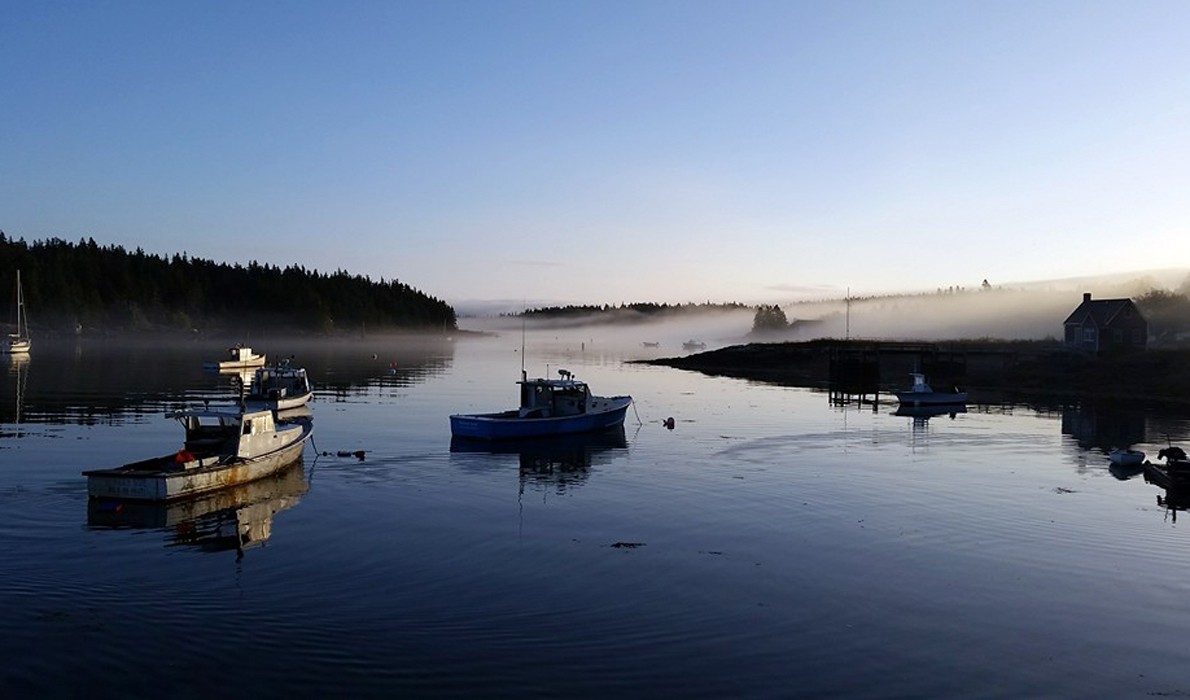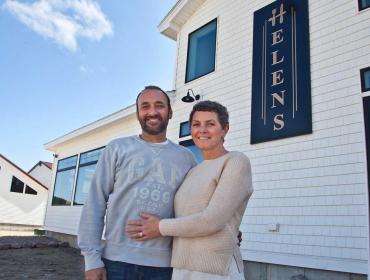Posted July 16, 2019
Last modified July 16, 2019
Reflections is written by Island Fellows, recent college grads who do community service work on Maine islands and in coastal communities through the Island Institute, publisher of The Working Waterfront.
By Molly Siegel
Shop parties. The term evokes late-night parties in a lobsterman’s trap shop, playing instruments, dancing, and cavorting until the night grows thin.
It came up recently in a community forum on housing solutions on Isle au Haut. A resident who has lived on the island for many years remarked that in addition to housing and jobs, the young working people on the island also need things to do.
“They have to have entertainment,” she said, “otherwise they won’t stay here.”
Back in the day, there were shop parties every week. Those in the room who could remember shop parties chimed in with their own memories. The rest of us were left to imagine and reflect on what our own generation is doing to create and sustain a way of life on the island.
Although my time on the island is limited, I still feel I have a stake in this issue. After all, I am a member of this younger generation. I want to live in a dynamic, thriving place with folks of all ages. I care about the people here and I want them to succeed. And I believe the island’s success can have implications for other communities around the world that are facing the same problems we are facing.
The task for young people now is to build a way of life that fits within a changing world and also preserves the traditions of the past. Throughout many conversations and interviews, I have gathered that there is something special about life on the island that sets it apart from any other place.
“I moved here to get away from the busy pace of everyday life,” or “I stayed here because I feel connected to this place.” There is a sense that this way of life is worth preserving. And yet, people here do not shy away from the fact that we have no idea what the island will look like in ten, 15, or 20 years.
Islanders are not afraid to speak of the obvious uncertainties of the future. This sense of realism, I believe, can make island communities resilient. They have overcome challenges in the past. The difference now is that we live in a world of increasing complexity. Young people in particular have a lot on their plates: student debt, lack of health care, uncertain income. These challenges are not all unique to younger generations, but they take on new weight in an unstable world and changing climate.
So what are young people doing to build a sustainable future on the island?
This fall, when I asked housing committee members to state their reasons for being involved in the project, I got a variety of responses from “I need housing now” to “I don’t want to live on Isle au Haut alone.” Unsurprisingly, some of the most vocal advocates for sustainable housing are part of the younger generation. They try to envision a way forward but it is impossible without access to safe and stable housing.
At this year’s town meeting, someone remarked on how encouraging it is that the younger generation is stepping up to fill the roles previously held by the older generation in town government. This is true, and it is also true that they are taking these positions out of necessity. Young people need support as they take on these roles. They can help islands thrive, but they can’t do it alone. Safe, sustainable housing is a great place to start.
At the heart of the comment about shop parties is a sentiment we all share—the worry that the world is changing so much that young people will not want to live in isolated communities anymore. My experience on Isle au Haut has shown the opposite. Young people, if given the support they need, will do everything they can to create a livable future.
Molly Siegel is providing technical support for a community telemedicine facility and affordable, sustainable year-round housing. She has a bachelor of arts in environmental studies from Dartmouth College.

Contributed by




